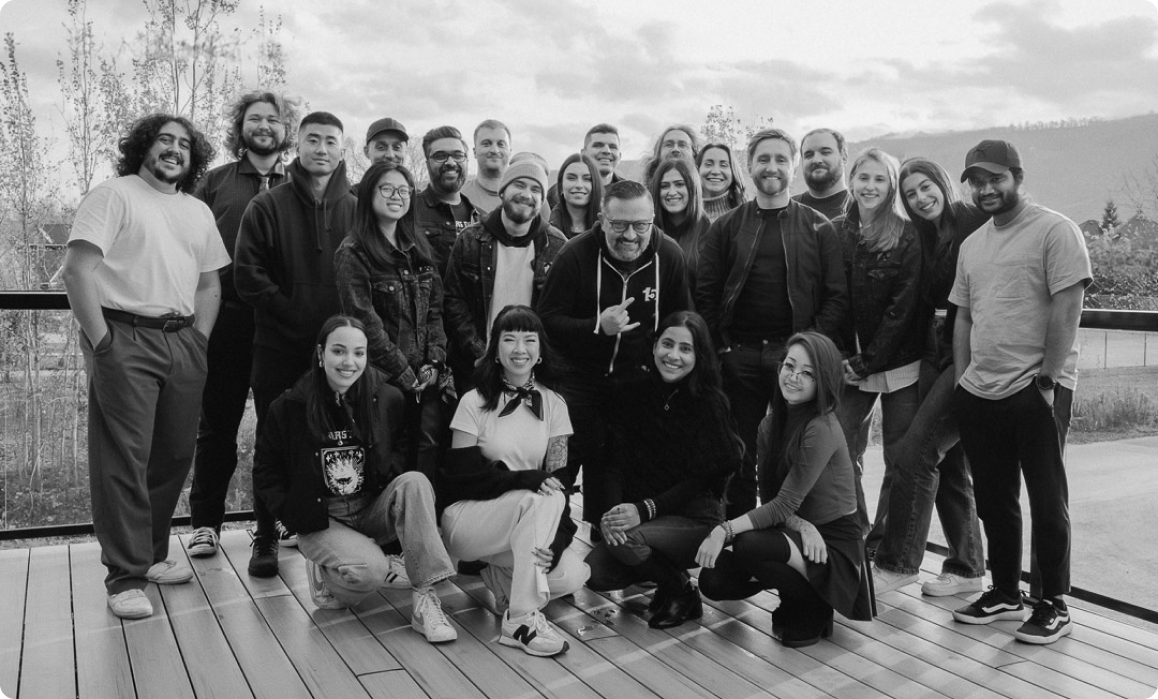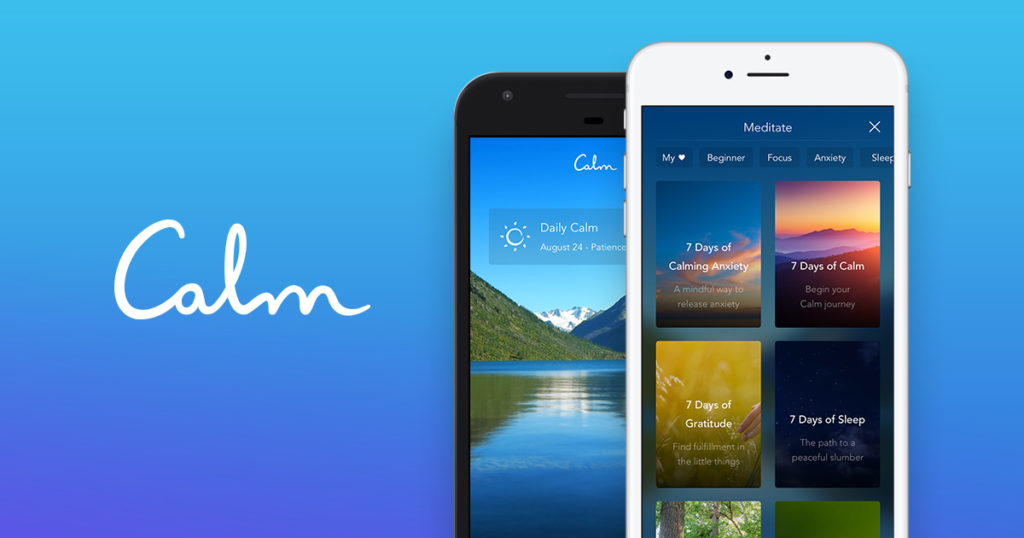May. 17, 2019

The Analog Bounceback: Mindfulness in the Workplace
As the influence of digital technologies continues to expand, we can see an interesting counterpoint also happening—which is a trend to embrace purposefully non-digital aims. This analog bounce-back includes companies—even those deeply rooted in technology—offering tools to help their clients and/or employees relax, unplug and unwind.
For instance, companies like Getaway and Hipcamp—which help people connect with nature—have been gaining in popularity. And in 2018, the meditation app Calm was named Apple’s App of the Year.
In 2007 Google spearheaded the program Search Inside Yourself, which helps their employees learn how to breathe more mindfully, listen more effectively to their coworkers, and improve their emotional intelligence.
Along with Google, other large companies that now offer employee meditation programs include Apple, Prentice Hall Publishing, Nike, AOL Time Warner, McKinsey & Co., Yahoo!, Deutsche Bank, Procter & Gamble, and HBO.
Mindfulness In The Business World
In observing this trend, a very legitimate question for a business owner or executive to ask, would be: In our age of digital genius, why this analog bounce-back?
What’s the source of this trend? What makes meditation and mindfulness increasingly popular among high-profile business owners and executives?
And does it make sense for my company to join the growing numbers that are providing meditation and similar tools for their employees, to intentionally offset stress and burnout?
Most fundamentally: How can meditation make me a happier person and a more successful business owner?
The Secret Sauce: Why Meditation Works
To explore these issues, let’s begin with a playful-serious Q&A.
Question: What do the following people have in common?
- Ray Dalio
- Larry Brilliant
- Robert Stiller
- Oprah Winfrey
- Jerry Seinfeld
- Deepak Chopra
- Bill Ford
- Rupert Murdoch
- Steve Jobs
Answer: For one, all are exceptionally successful in their chosen line of work. Whether as comedian, talk-show host, physician and spiritual teacher, or CEO of a Fortune 500 company—each of these people has enjoyed huge professional success. They’re well known and highly respected people, admired for their creativity and innovation—and the financial success they’ve facilitated.
And secondly, all of them attribute their success at least in part—and sometimes in large part—to a meditation practice:
* Stand-up comedian Jerry Seinfeld has been practicing Transcendental Meditation for upwards of 40 years. He describes it as a “charger for the body and mind”—similar to how we use a charger for our phone.
* Physician and spiritual guide Deepak Chopra considers meditation to be the foundation for success in any aspect of life—from personal happiness to effectiveness as a leader.
* Ray Dalio, the billionaire founder of Bridgewater Associates (the world’s largest hedge fund), has said that:
“Meditation more than anything in my life was the biggest ingredient of whatever success I’ve had.”
* Technology visionary Larry Brilliant, who is the former director of Google’s philanthropic arm Google.org, is another business executive who strongly advocates a mindfulness practice.
* Ford Motor Company chairman Bill Ford described to meditation teacher Jack Kornfield how he developed compassion for himself through a loving-kindness (metta) meditation practice. This, in turn, allowed him to lead with compassion.
* Robert Stiller, the CEO of Green Mountain Coffee Roasters, Inc., is a devoted meditation practitioner—and there’s a dedicated meditation room at the company’s Vermont headquarters. Says Stiller:
“If you have a meditation practice, you can be much more effective in a meeting. Meditation helps develop your abilities to focus better and to accomplish your tasks.”
* For Oprah Winfrey—whose 10-part series with spiritual guide Eckhart Tolle were among the most popular of any of her interviews—sitting in stillness nurtures hope, contentment, and deep joy.
These are just a sampling of the growing number of successful business people who have experienced, first-hand, the benefits of meditation—and how it has helped them achieve and sustain a high level of success.
How Meditation Improves Leadership Abilities
What makes for a successful leader, in the business world? If you jot down eight or ten attributes, chances are good that most if not all of them can be enhanced by meditation practice.
More and more business owners and executives of major corporations are—like me—becoming aware of the scientifically proven benefits of meditation, which include things like creative thinking and productivitylower stress levels; and enhanced
Meditation can help us:
- Maintain a steady reservoir of energy—by rebooting our body-mind physically, mentally, emotionally and spiritually
- Release unnecessary tension and stress—which helps us see things more clearly, and work more effectively
- Cultivate compassion for ourselves—which then makes it possible for us to lead from compassion
- Boost mental clarity and broaden our perspective (i.e. think out of the box)
- Focus better so we’re able to accomplish tasks more easily and efficiently
- Be less reactive and more creative
- Enhance concentration needed for developing innovative new products and protocols
- Increase our productivity by reducing distractive impulses
- Increase comfort, ease, and happiness—qualities which naturally translate into being a more effective business owner or manager
All of these ways that meditation not only makes me a happier person but also makes me a better business leader—gets right to the root of the analog bounce-back. Meditation and mindfulness are growing in popularity, among business execs, because it produces tangible benefits that positively influence the work environment.
Meditation improves mental health and well-being. It transforms the entire work culture while promoting employee productivity and happiness. The leaders benefit. The employees benefit. And the company’s bottom line benefits as well.
What’s not to love about this?!
How To Implement Meditation Into Your Work & Personal Life
Reaping the benefits of meditation requires, of course, that we practice it. Here are some tips to help you get started:
- Begin and/or end your day with 15-20 minutes of meditation.
- After meditating in the morning, set your intentions for the day.
- After meditating in the evening, think of things that you’re grateful for, as you drift off to sleep.
- Meditate during your lunch hour: in the company meditation space; an enclosed courtyard; or in your office/cubicle.
- Use Unified Mindfulness or other online guidance, for specific techniques.
Over time, the fruits of your practice will ripen—providing first-hand experience of how meditation enhances your personal and professional life.
Questions or comments? Please feel free to contact us.
Book with us
Let’s accomplish what you are looking for, our team of experts are here for you.
Let's work togetherWarning: Working with our team may result in excessive creativity, uncontrollable 'aha' moments, and an addiction to perfect pixels. Please proceed with caution.




